Does The Big Bang Require An Absolute Beginning To The Universe?
Has Dr. Sean Carroll escaped the theistic implications of the Big Bang?
Does The Universe Have A Cause?
One of the most popular arguments for God’s existence is the argument from the beginning of the universe. It goes like this:
1. Everything that begins to exist has a cause.
2. The universe has a beginning
3. Therefore, the universe has a cause.
That conclusion serves as a springboard to identify that the cause of the universe must be timeless, spaceless, and possess immense causal power. When combined with other scientific observations of the universe, it is implied that this cause additionally is both intelligent and personal. The argument from the beginning of the universe provides powerful evidence that God is the Cause of the universe.
Because this argument’s reasoning is valid and its conclusion strongly implies theism, atheists commonly attack the argument by denying one of its premises: namely, the second one, that the universe had a beginning. Dr. Sean Carroll is one such atheist. He attempts to escape the theistic implications of the beginning of the universe without denying the (appearance of a) beginning of the universe. A friend presented to me this slideshow from Dr. Carroll not too long ago:
What We (Don’t) Know About The Beginning Of The Universe
What We Don’t Know
In this presentation, Dr. Carroll points to the reality that scientists can peer all the way back into the history of the universe except for the precious few moments after the cosmic creation event that we call the “big bang.” He appeals to this unknown epoch of time to claim that it is illegitimate to ask if the universe had a beginning. But rather he says that the question should be “is it plausible that the laws of physics allow for a universe with a beginning?” His answer is “yes, the laws of physics do allow for a universe with a beginning.” This means that Dr. Carroll is positing that the laws of physics exist outside and independent of this universe, exist eternally, and permit the appearance of a universe that has a beginning (our universe).
Already, Dr. Carroll has claimed that the super-natural exists- the necessary and inescapable implication of the argument from the beginning of the universe. His view is that there is something that exists eternally beyond this universe, so while he may be an atheist, he is still a super-naturalist. This is important to keep in mind through the rest of this discussion.
Because super-natural laws of physics could exist eternally, they permit an eternally existent reality (one with no beginning and no need for a Cause). So, Dr. Carroll posits that the only question we have is, “what is the nature of that eternal reality that allows for a beginning of the universe we live in?” He presents several different models and offers that one of these or a yet-to-be-theorized model could also be on the table.
If Dr. Carroll is sound in his reasoning, the major implication here is that the universe’s creation at the big bang does not necessarily posit a Creator of physical reality. And on first glance, it appears that Dr. Carroll has been successful in his attempted undermining of the argument from the beginning of the universe for God’s existence. For those who are not familiar with the argument from the beginning, please take a few minutes to watch this video from Reasonable Faith:
No Time, But Time
With all due respect to Dr. Carroll as a theoretical quantum physicist, he is not a philosopher and makes three elementary mistakes in his argument. Each mistake individually undermines his conclusion.
First, his logic allows him to argue from the plausibility of an eternal physical reality permitted by super-natural laws of physics to the plausibility of an eternal physical reality. Here is his argument formalized:
1. The reality that exists can be fully described by super-natural laws of physics (sans time).
2. The super-natural laws of physics (sans time) allow for an eternal reality.
3. Therefore, the reality that exists allows for an eternal reality.
The parenthetical phrase is quite important to this argument because Dr. Carroll must grant that time, as we experience it, began to exist with the big bang. However, he cautions the viewer in Slide 8, that “there was an initial moment — a time before which there was no time” (emphasis added). By that he is saying that there is a super-natural time or another dimension of time. The time that we experience exists within this other time, and the time that we experience had a beginning within this other time.
It is this super-natural time that serves as the defeater for both premises of his argument (because both premises rely on it). Considering the fact that his laws of physics exist outside of this universe, they are bound by this super-natural time. An eternal reality requires a series of an infinite number of past moments. The discovery that our universe has a beginning places a hard stop on the number of past moments, so our universe is demonstrably not eternal and has a definite beginning. Dr. Carroll, though, attempts to escape a beginning to all physical reality by positing this super-natural time.
It is this super-natural time that he is claiming to be eternal- with an infinite number of past moments already traversed and an infinite number of future moments yet to be traversed. But he has a problem. An actual infinity is asymptotic, meaning that infinity is a theoretical boundary that is approached but never reached. This is a feature of mathematics that must also exist outside our universe to constrain the laws of physics which Dr. Carroll already assumed exist outside our universe. If the moments in this super-natural time can be counted using numbers, mathematics necessarily constrains this super-natural time, as well. If Dr. Carroll’s super-natural time is past-eternal, then an infinite number of moments have happened. But because it is a necessary feature of mathematics that an actual infinite number is impossible to reach, it is also impossible that an infinite number of moments have happened. Thus it is impossible that supernatural reality is infinite into the past no matter what kind of time is posited. Without the greater reality existing into the infinite past, it is not eternally existent, thus it also had a beginning.
Dr. Carroll knows that time, as we experience it in this universe, comes to an absolute beginning; however, he does not seem to recognize that the laws of physics are not the only thing that cause the present time to come to an absolute beginning- mathematics does as well. The laws of physics, that govern the expansion of our universe, just dictate where along the time-line that absolute beginning is located for our universe (approximately 13.7 billion years ago). All he has done by positing a super-natural time is to move the problem back one step. The super-natural time, though not limited by the laws of physics that govern our universe (or the super-natural yet physical reality of Dr. Carroll), is constrained by mathematics, which necessarily forces that super-natural time to an absolute beginning.
Dr. Carroll’s first philosophical mistake is that he has undermined both of his own premises as he is making his argument for his conclusion. He has attempted to escape a necessary implication of time by positing another type of time, but even that type of time is stuck with the necessary implication he is trying to avoid. Without the truth of his two premises, his conclusion does not follow. Not only that, the conclusion that he is trying to undermine (that physical reality had a beginning) is only delayed by one step, but it still is necessarily true.
Cherry-Picking
Dr. Carroll posits that while we may not know what kind of universe we live in, it is some kind of eternal universe where time (in one sense or another) exists in the infinite past. Dr. Carroll presents the naturalist with many options to choose from or they are permitted to suspend their choice for a better model: cyclic universes, hibernating universes, reproducing universes, and time-symmetric multiverses.
All of these cosmologies have one feature in common that, if impossible, makes them all impossible (regardless of which one you wish to choose). This feature is the past series of infinite moments that was demonstrated as impossible above. Even if the naturalist were to suspend their commitment to a particular model, they have not suspended their commitment to a past series of an infinite number of moments. Thus, they are still committing themselves to an impossibility.
Now, Dr. Carroll uses the unknown of the initial moments of the universe to argue that it is possible at this universe is part of a larger, eternal reality. But this is not a matter of epistemology (what we have not yet discovered, in this case) but a matter of ontology (what is impossible). What is impossible (ontology) cannot be discovered (epistemology). Epistemology is necessarily confined by ontology. What is possible to be known is necessarily limited by what is impossible to exist. Dr. Carroll has taken only a portion of the full evidential base of reality to make his case and has ignored (or is ignorant of the implications of) the larger evidential base. (The larger evidential base that I am referring to is that of the constraints on reality by mathematics explained above).
His second error is that he has cherry-picked the evidence of the flexibility of laws of physics in support of his view and ignored the evidence of constraints of mathematics that would defeat his view.
God of the Gaps?
According to Dr. Carroll, the options to explain our universe’s beginning are endless, so why must we feel committed to choosing God? This would be a classic example of god-of-the-gaps reasoning. An <option>-of-the-gaps reasoning is an improper application of the process of elimination. The process of elimination is an evidential knock-out exercise. You start with many options on the table of possibility and remove them based upon their impossibility of explaining the evidence available. If you are to conclude that one option is correct without having logically removed the other options, then you have committed an <option>-of-the-gaps fallacy. However, if you have knocked-out the other options based upon the evidence, then the conclusion that the remaining one is possible (or even true) is logical, and no fallacy has been committed. All sorts of diagnosticians use this reasoning method in their work to identify causes of problems and resolve them: computer technicians, auto mechanics, medical doctors, etc.
Dr. Carroll presents several eternal cosmologies (super-natural but physical realities) as being on the table, which they are, until we evaluate them evidentially based upon the nature of mathematics. Once mathematics is brought to bear upon the options on the table, all eternal cosmologies are logically (thus legitimately) knocked out and removed from the table of options. Thus, only cosmologies with a beginning still exist on the table of possibility.
Dr. Carroll has not evidentially eliminated cosmologies with a beginning from the table, and he has concluded that an eternal cosmology is correct. An “eternal universe-of-the-gaps” fallacy has been offered by Dr. Carroll as an alternative to the sound argument from the universe’s beginning for God’s existence. Yet the theist has evidentially and logically removed eternal cosmologies from the table of options, thus they are not committing a “beginning/god-of-the-gaps fallacy” when they conclude that all physical reality had an ultimate beginning.
Contrary to Dr. Carroll’s claims, his critics have not committed an <option>-of-the-gaps fallacy by not removing other options from the table legitimately; it is Dr. Carroll who has not evidentially or logically removed an ultimate beginning to reality from the table, thus he is the party that is guilty of his own accusation- the commission of an <option>-of-the-gaps fallacy- His third mistake.
“Proof of the beginning of time probably ranks as the most theologically significant theorem. This great significance arises from the theorem establishing that the universe must be caused by some Entity capable of creating the universe entirely independent of space and time. Such an entity matches the attributes of the God of the Bible…”- Hugh Ross
A Way of Escape: Denying Logic
A way to avoid these necessary implications, though, is to deny that logic (thus denying mathematics as well) and these philosophical categories exist either prior to the big bang or without the universe is to ultimately destroy any foundation by which to ground or govern ANY quantum (physical) and/or metaphysical (non-physical, including natural or super-natural) causal activity prior to the big bang and/or outside this universe. This move would rule out ALL causes, which would mean that Dr. Carroll must offer a model for the cause of the big bang and/or origin of the singularity with the non-existence of logic, mathematics and causes.
And let’s make this just a bit more difficult for Dr. Carroll: in order for logic and mathematics to exist, they must have a foundation outside of even his super-natural reality for his super-natural reality to be governed by them. God is the only source of such a foundation, so even if Dr. Carroll was correct that a supernatural reality does exist, God is still necessary and cannot be logically escaped. For more on this, please check out my posts “6 Ways Atheism Is A Science Stopper” and “The Multiverse Instead of God?: Four Philosophical Problems.”
Conclusion
So, Dr. Carroll is correct that we do not know those early moments of the universe. But that does not give us a reason to think that God is not necessary. What we know from other knowledge disciplines simply defeats Dr. Carroll’s attempts to escape the God of the Bible. Because of what we know from the other knowledge disciplines, his appeals to unknown features of reality simply do not help his conclusion. The fact that he has to ignore these other knowledge disciplines (which ironically ground his own discipline) in order to make his case is telling. Dr. Hugh Ross put it quite nicely in his book “The Creator and the Cosmos: How The Latest Scientific Discoveries Reveal God“:
Recommended resources related to the topic:
God’s Crime Scene: Cold-Case…Evidence for a Divinely Created Universe (Paperback), (Mp4 Download), and (DVD Set) by J. Warner Wallace
God’s Crime Scene: The Case for God’s Existence from the Appearance of Design (mp4 Download Set) by J. Warner Wallace
God’s Crime Scene: The Case for God’s Existence from the Appearance of Design in Biology DVD Set by J. Warner Wallace
What is God Like? Look to the Heavens by Dr. Frank Turek (DVD and Mp4)
I Don’t Have Enough Faith to Be an Atheist (Paperback), and (Sermon) by Norman Geisler and Frank Turek
Luke Nix holds a bachelor’s degree in Computer Science and works as a Desktop Support Manager for a local precious metal exchange company in Oklahoma.
Original Blog Source: https://cutt.ly/FgzbKnM

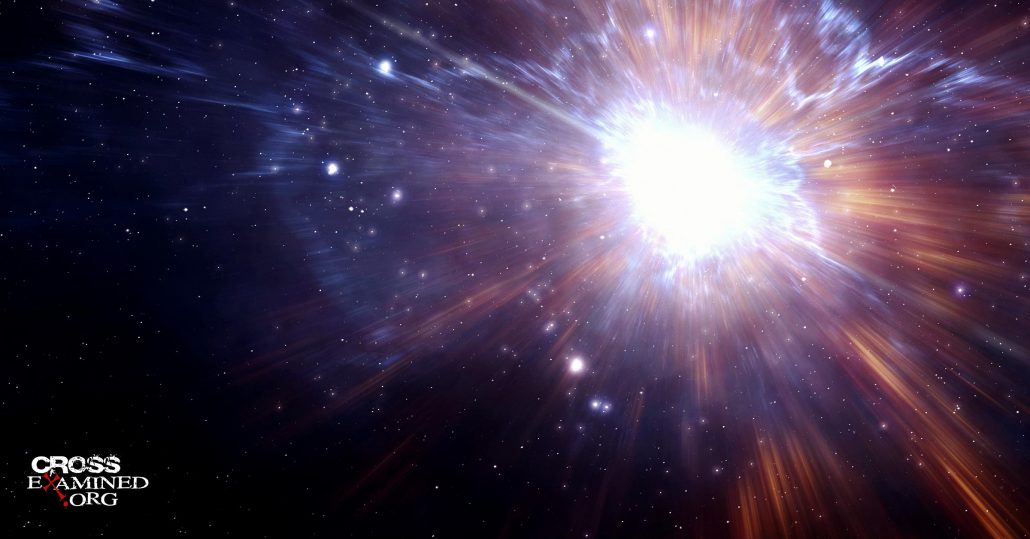

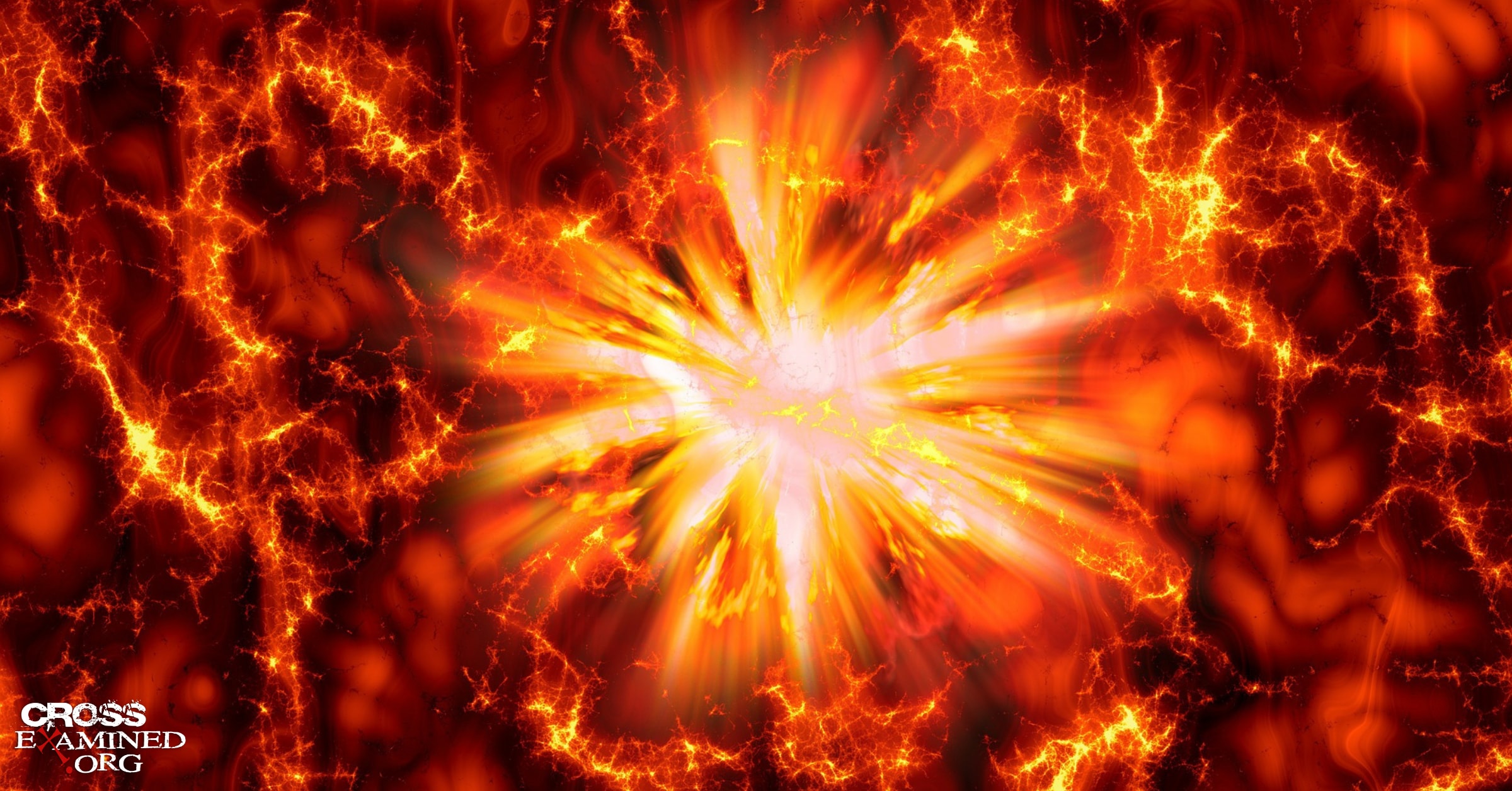



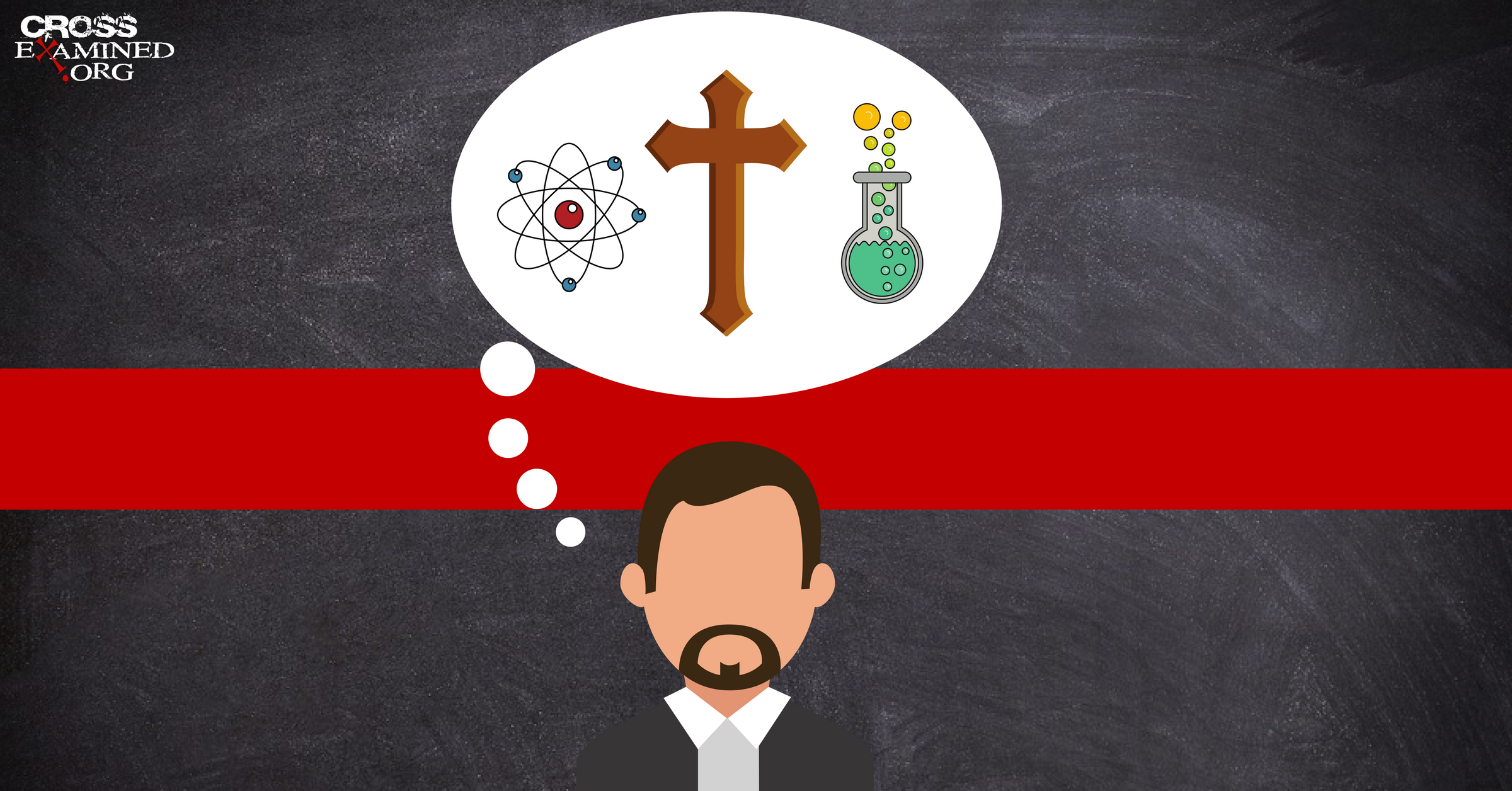
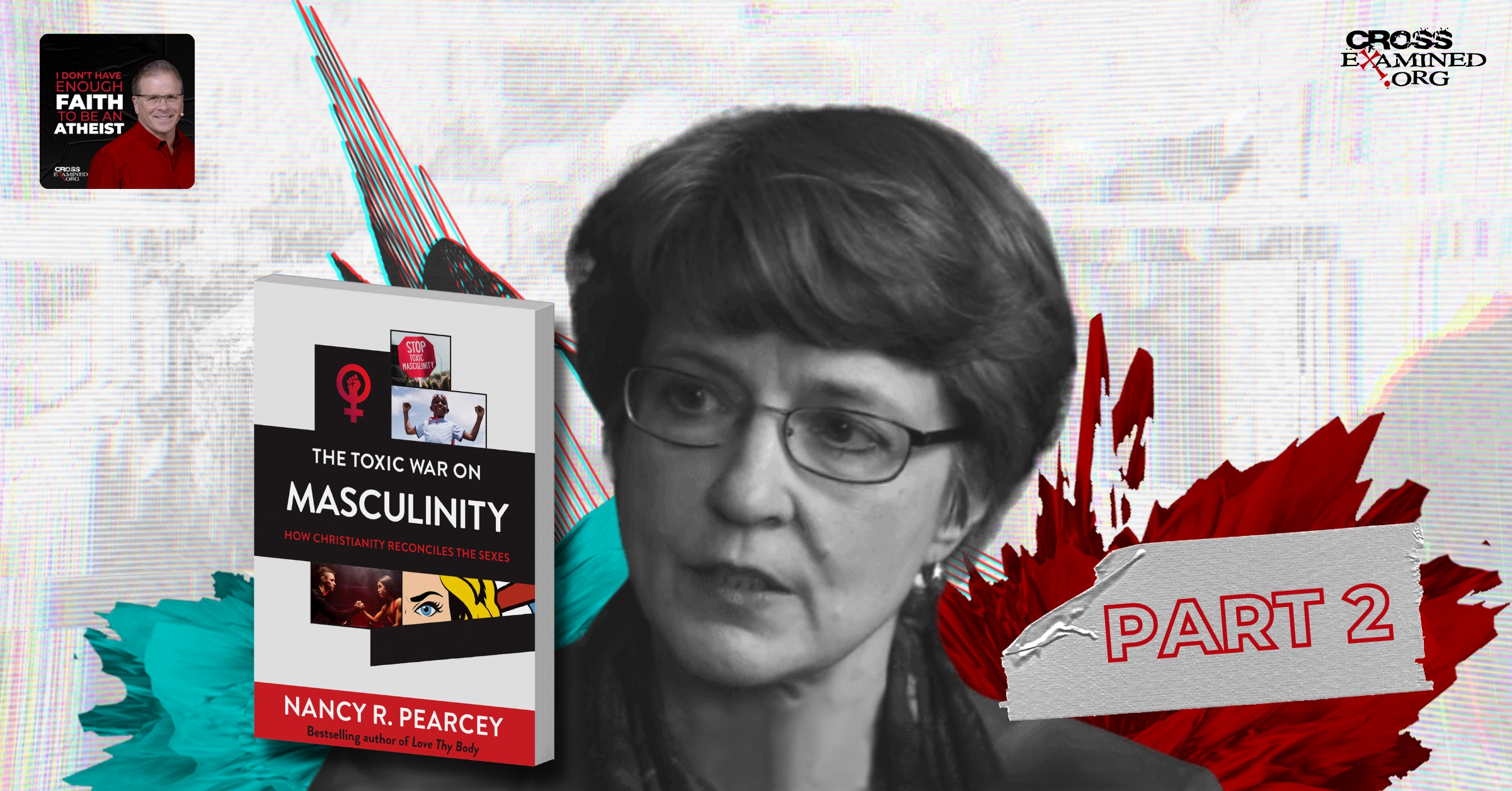

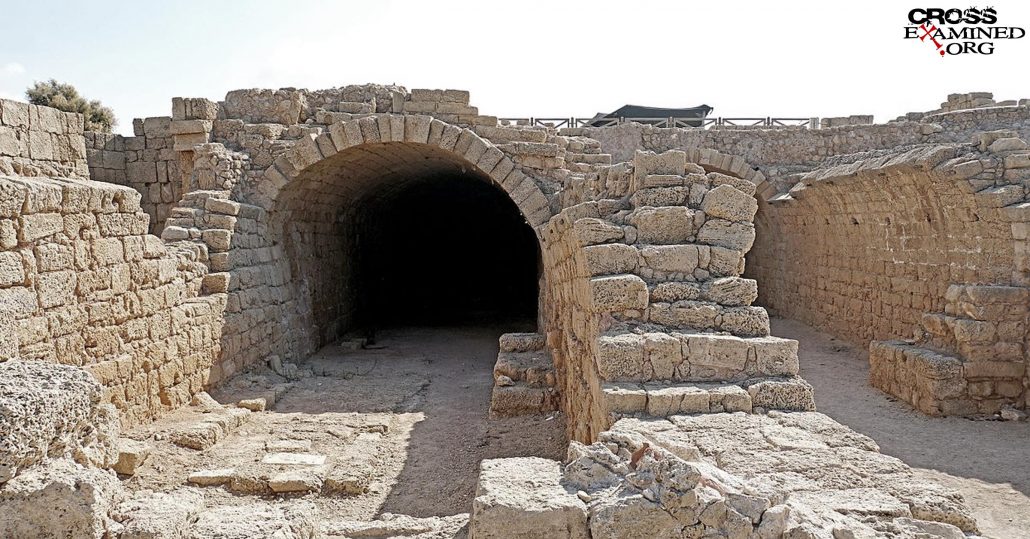
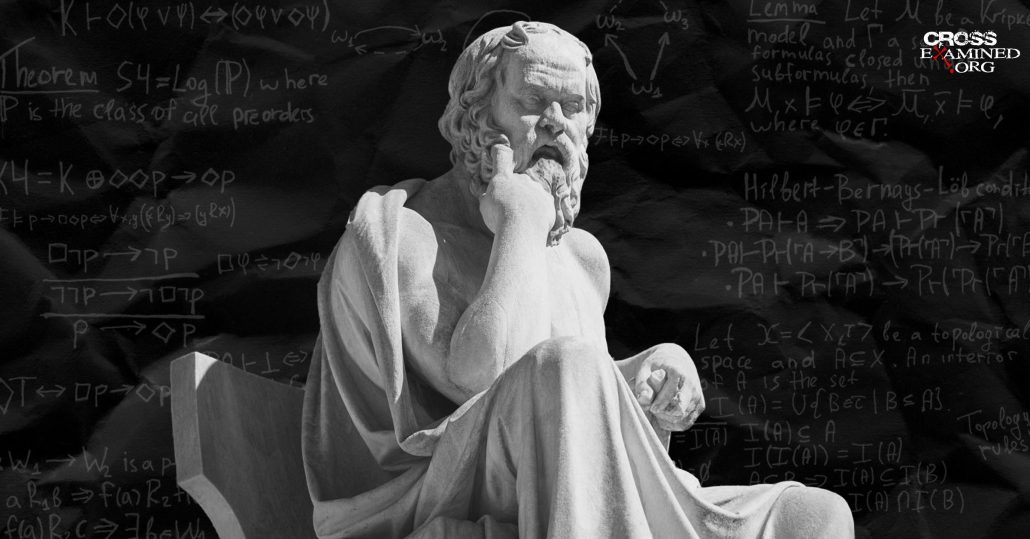
Leave a Reply
Want to join the discussion?Feel free to contribute!